Mid-Atlantic Volunteer Monitoring Conference
Alexandra Fries ·Caroline Donovan and I participated in the Mid-Atlantic Volunteer Monitoring Conference in Winchester, Virginia last month. This conference focused on volunteer monitoring efforts in Virginia, Maryland, Pennsylvania, Delaware and West Virginia. The theme was bridging the water quality data gap, and the way to do this proposed as expansion and improvement of volunteer monitoring efforts.
The conference began, not in the lecture hall, but on the Shenandoah River on August 6th, 2015. We put in at the site of an old mill that had been revived and now grounds grain for breweries. After touring the mill it was time to get on the river. We took a guided 7-mile canoe trip down the Shenandoah with around 20 other conference participants. The weather was cool for August, but perfect, with a little light rain.
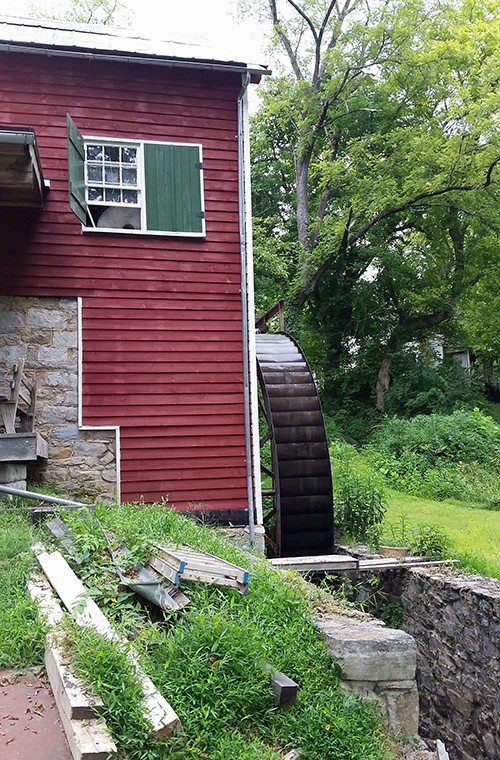
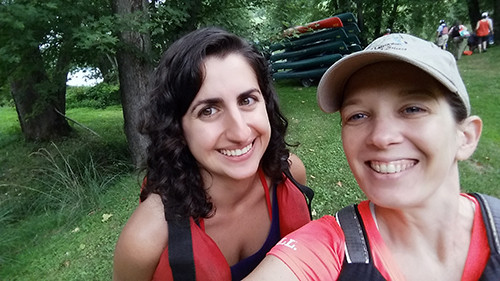
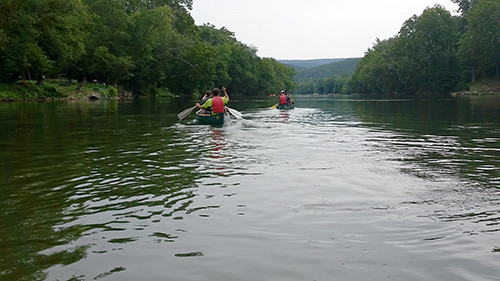
That night we had dinner with Julie Vastine and Anna Mathis, partners working with us on a new project to integrate citizen science and volunteer monitoring throughout the Chesapeake Bay. This partnership is a collaborative effort between the Alliance for the Chesapeake Bay, Izaak Walton League of American, the Alliance for Aquatic Resource Monitoring (ALLARM) at Dickenson College, and the Chesapeake Bay Program monitoring network to help accurately inform Bay restoration decision-making and track local river trends. Additionally, we held a session about this work during the conference with Leah Miller (our partner at the Izaak Walton League).
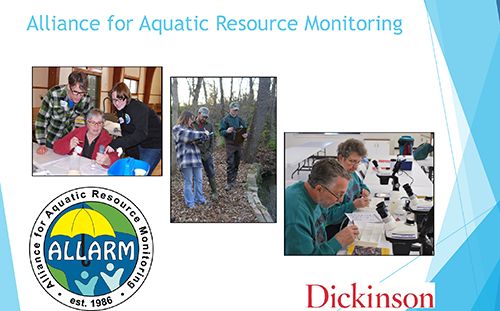
The conference was held at Shenandoah University on August 7th and 8th. There were over 112 participants with 40 speakers at the conference. All of the sessions I attended were very interesting, with good informative talks. It was hard to choose which to attend, as there were five concurrent sessions on Friday afternoon and Saturday morning.
James Beckley with the Virginia Department of Environmental Quality was one of the key organizers of the conference. He not only coordinated almost everything, but also gave several talks. His talk on Quality Assurance Quality Control (QAQC) was especially interesting, and he included some slides with more uncommon images in volunteer monitoring.
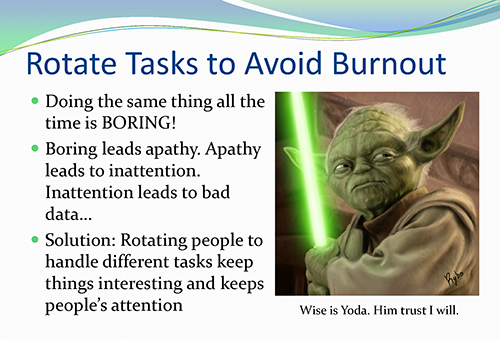
On Saturday, John Dawes gave a great presentation. He is the founder of Chesapeake Commons, a group that makes data visualizations. As an example of spatial patterns, John showed a revamped version of the John Snow 1854 Cholera Epidemic map.
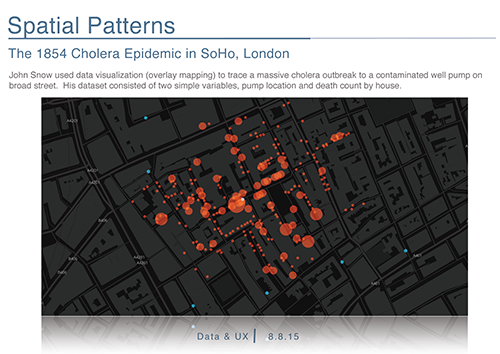
In talking about data visualization, John Dawes also referenced a quote that I think well encompasses all kinds of data, not just that collected for water quality monitoring. Data opens up a world of immense possibility.
"With the rise of transaction-based software, data is now viewed as both the “new oil” and “new soil.”
-Adapted from David McCandless
About the author
Alexandra Fries

Alexandra is a Program Manager at the Integration and Application Network (IAN) based at the University of Maryland Center for Environmental Science in Annapolis MD. Alexandra’s work in environmental management has been focused on assessment, monitoring, and management of aquatic, marine, and terrestrial ecosystems. Alexandra has extensive experience in data analysis, synthesis, mapping, interpretation, and communication. Alexandra has experience working with a diverse group of partners including those in local, state, and federal government, non-governmental organizations, non-profit organizations, private industry, and academia. Within IAN, Alexandra conducts data analysis, synthesis, and communication by completing environmental report cards, updating the IAN website, and conducting science communication courses. Alexandra also creates science communication materials such as diagrams, posters, presentations, newsletters, and reports using Adobe Creative Suite, Microsoft Office Suite, and ArcGIS. Alexandra has experience managing projects and staff on local and international projects, liaising directly with partners and colleagues, and providing insights on project direction and goals.
Next Post > The Meta River Report Card Workshop - The Orinoco River Basin, Colombia
Comments
-
Atika 4 months ago
Thank you for sharing this great information with us, i really appreciate your post!